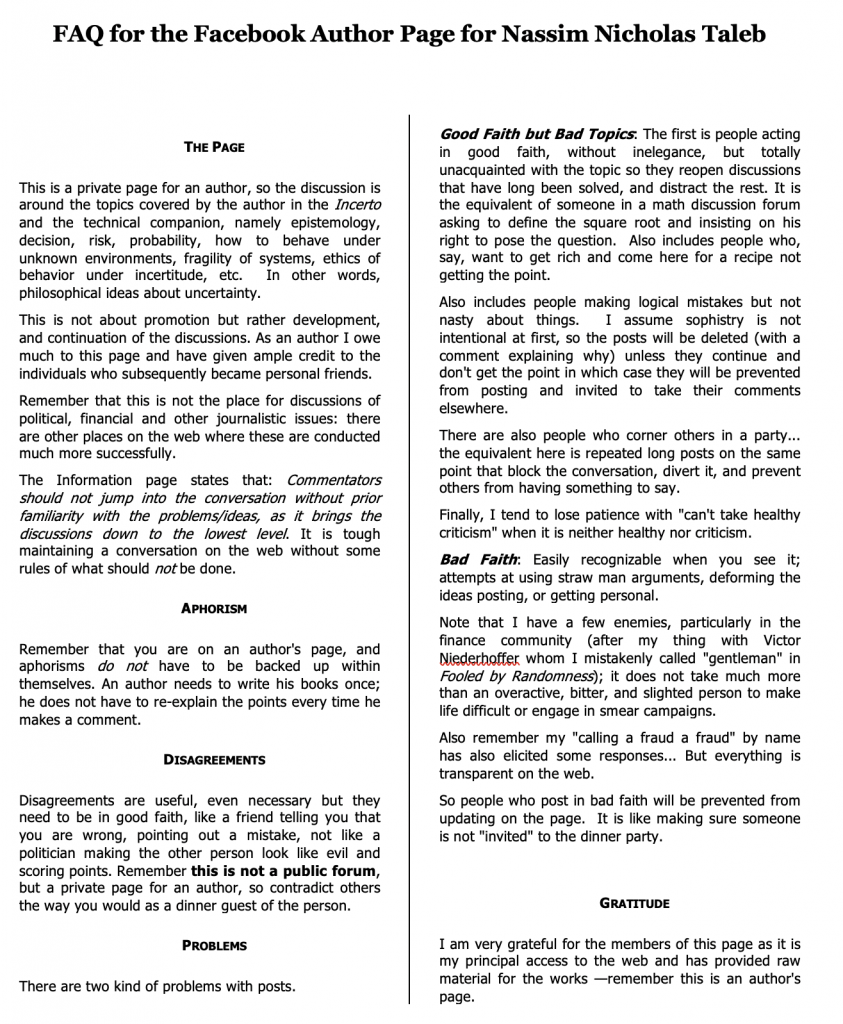Hello Subscribers, New and Old.
Welcome to Weekly Wisdom, your weekly dose of highlights, quotes and notes from my notebook. If you would like to receive this in your inbox, subscribe now.
Something I learned this week
Imaginary Numbers have a very interesting history. Algebra didn’t always have the notation we use today. It was described in terms of descriptive passages and geometric models. That tied mathematics to the physical world. However, that leaves very little space for negative numbers. Which is why solving the Cubic Equation took thousands of years. This video recounts how Gerolamo Cardano arrived at the sqaure root of -1, as well as the Renaissance era academic politics. Later termed an ‘Imaginary Number’ by Descartes, denoted by an ι by Euler, and ending up in Schrodinger’s Wave equation. Which describes the most fundamental phenomenon of Physics.
It is by disassociating itself from the real world, did mathematics became capable of describing the real world.
Something(s) to read
- The theater of state power by Andrew Batson: Andrew Batson is may be the most insightful commentator on China in the English language. In this essay from the early days of pandemic, he describes how state power is maintained and projected in the PRC. This informs a lot of what has happened since.
- Nassem Taleb’s rules for online engagement: Taleb came up with a set of rules of engagement for his Facebook page. These are a good way of determining whom to engage with online on which subjects.

Quotes and Notes
Open Incentives
This essay is about Microsoft’s hidden advantage in the metaverse. However this passage reminds us about the incentives that birthed the internet. Those incentives are not present for any similar endeavor. So your Crypto Meta Web3 will not be an open platform. It would be more like terrestrial TV at best and Cable TV at worst.
The entire reason the Internet is as open and interoperable as it is is because it was built in a world without commercial imperative or political oversight; all future efforts will be led by companies seeking profits and regulated by governments seeking control, both of which result in centralization and lock-in.
— Ben Thompson, Microsoft and the Metaverse
Media and Reality
Stuff that inspire me, intrigues me and sometimes infuriates me.
This is the message you would have read when you signed up. Well this long essay is definitely in the latter group. The central premise of the whole thesis is confused; It conflates Republican, Conservative and Right-Wing. Same goes for Democrat, Liberal, and Left-Wing. All the while talking about the typical voters for the party.
That being said it is a valuable summary of the issues that plagues the electoral politics of the US.
One good way to understand the differences here is by looking at the 2020 Trump campaign, which was sort of a reductio ad absurdum of the general trends we see on the right. Republicans simultaneously attacked Biden for being woke and wanting to let BLM burn down cities, and also for being “racist” because he was once tough on crime. The Democratic base would not have let Biden get away with something similar; they demanded he demonstrate an ideological commitment to being softer on crime than Republicans, and he generally did, although he may not have gone far enough for some activists.
How cancellations work on each side also demonstrates the ideological versus tribal divide. On the left, people are cancelled for ideological transgressions. Al Franken was hounded out of the Senate and Andrew Cuomo from the governor’s office for MeToo reasons, with pressure coming from their own side. And when we talk about a Democrat potentially getting primaried, it’s usually over their positions. Republicans, meanwhile, have been purging people for insufficient loyalty to Trump, not over any ideological principles. Recall that Liz Cheney was originally promoted to the third highest Republican position in the House, despite supposedly being ideologically as far away from Trump as one can be. Meanwhile, no one was more supportive of Trump’s agenda, to the extent there was one, than Jeff Sessions, and now Republicans hate him, because again, loyalty to Trump is all that matters.
— Richard Hanania, Liberals Read, Conservatives Watch TV
Class and Surrealism
I will keep quoting Susan Sontag’s On Photography because it is beyond relevant. This time form the essay Melancholy Objects. This one focusses on how photography denigrates the downtrodden. the poor, the disabled, the broken down. For the benefit of the Bourgeoisie.
Photography has the unappealing reputation of being the most realistic, therefore facile, of the mimetic arts.
…
Surrealism lies at the heart of the photographic enterprise: in the very creation of a duplicate world, of a reality in the second degree, narrower but more dramatic than the one perceived by natural vision. The less doctored, the less patently crafted, the more naive in history-the more authoritative the photograph was likely to be
…
Surrealism is a bourgeois disaffection; that its militants thought it universal is only one of the signs that it is typically bourgeois.
— Susan Sontag, On Photography
Thank you for joining me this week. If you know some who might enjoy this, please forward this email to them. See you next week.
Mudassir Chapra

